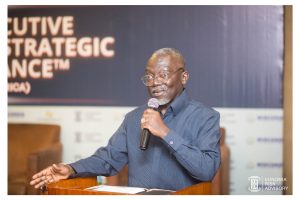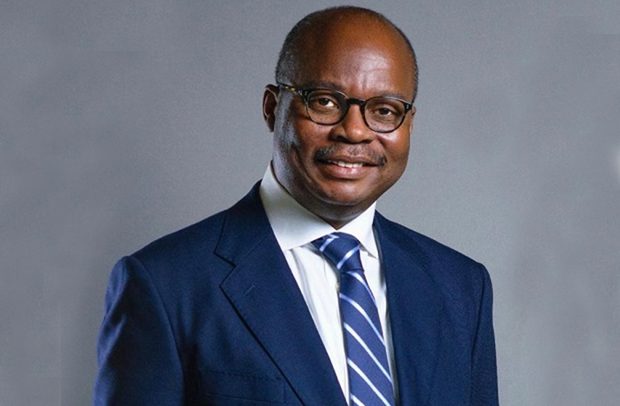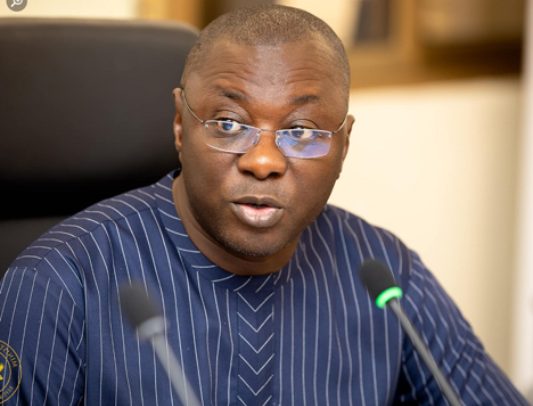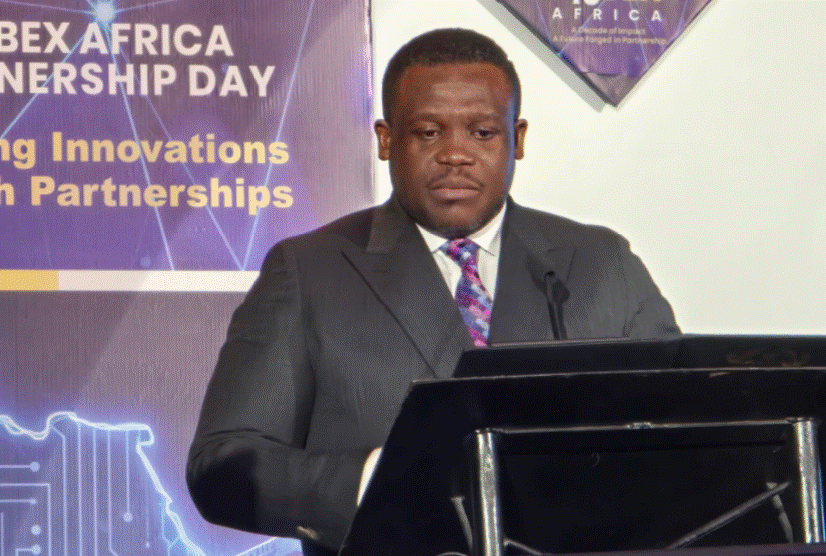
By Ebenezer Chike Adjei NJOKU
Local leaders have been urged to lead a continent-wide effort to rethink and reshape governance structures to better reflect African realities, values, and development needs.
The call was made during the inaugural Executive Forum on Strategic Compliance in West Africa, held in Accra, and convened by Eunomia Risk Advisory, Inc., where public and private sector leaders, governance experts, and legal practitioners from across Africa and the diaspora gathered to address pressing issues around governance, risk, and compliance.
Professor Douglas Boateng, a globally recognised supply chain governance expert and Africa’s first Professor Extraordinaire for Supply and Value Chain Management, delivered a keynote address in which he was critical of the persistent adoption of Western governance frameworks without adaptation to local conditions.

Describing the Forum as “a historic occasion,” Prof. Boateng said Africa’s political independence must now be matched by economic emancipation, with Ghana once again assuming a leadership role. “We led the continent’s political independence, and as an unapologetic Pan-Africanist, I believe the economic emancipation of the continent will also be led from Ghana,” he said, noting that Western-style governance structures may have played a part in the continents development but is inadequate for the next phase.
Prof. Boateng argued that many of Africa’s systemic governance failures stem from a culture of short-termism, ceremonial leadership, and imported structures that do not align with societal needs. “Instead of building systems that serve the common good, we have built systems that serve a few,” he said, citing the frequent dissolution of institutional memory with each election cycle as a core problem.
The founder of the event, Tiffany A. Archer, Esq., and founder and president of Eunomia Risk Advisory, hosted the Forum. Eunomia, which applies behavioural science and data analytics to strengthen ethical decision-making and institutional resilience, is working with African partners to co-develop governance models tailored to regional contexts. “Too often, compliance and ethics are treated as external mandates rather than internal strengths. Africa is not waiting to be invited to the table. We’re building our own,” Ms. Archer said.
The Forum’s overarching sentiment was a rejection of the status quo in favour of a generational shift. Panelists emphasised the need to embed governance literacy from an early age, simplify frameworks for small and medium-sized enterprises (SMEs), and insulate state-owned enterprises (SOEs) from political interference.
Regional vision rooted in Agenda 2063
The discussion frequently returned to the African Union’s Agenda 2063, the continent’s 50-year blueprint for inclusive and sustainable development. While progress has been uneven—Ghana has reportedly achieved 46 percent of the agenda’s targets, compared to 77 percent for Senegal and 39 percent for Nigeria —speakers agreed that governance reform is central to accelerating implementation.
Ambassador Dr. William G.M. Brandful, a retired diplomat and academic, described the performance as “disappointing,” and called for broader citizen engagement in policy formulation and execution. “There is a huge disconnect between those who set the standards and those expected to implement them. We need to make ordinary Africans part of the process,” he said.
Indeed, statistics from the African Peer Review Mechanism suggest that poor governance costs the continent an estimated US$150 billion annually through corruption, inefficiencies, and mismanagement. At the same time, the United Nations Economic Commission for Africa has noted that only 12 of 54 African countries have governance indexes above 60percent, indicating a widespread need for reform.
Education, ethics and the next generation
Prof. Boateng stressed the importance of early governance education as a tool for sustainable change. He announced that his newly published book on governance, developed with Eunomia, had been approved by the National Council for Curriculum and Assessment (NaCCA) for use in secondary schools—the first such approval of a governance text for that age group. “We need to catch them young, so they have the ethics, the morality, and the confidence to stand in a boardroom and say, ‘No, this is not right’,” he said.
The move to embed governance concepts at the secondary level is intended to complement longer-term reforms at the tertiary and professional levels. Panelists proposed the creation of simplified governance frameworks, particularly for SMEs, and advocated for the institutionalisation of national development plans to transcend political transitions.
Nana Ama Botchway, founder of n. dowuona & company and a seasoned corporate director, noted that cultural factors often impede effective governance. “In Ghana, we have a very deferential culture, which makes it difficult for people to challenge authority in the boardroom. We need to account for this when designing governance frameworks,” she said.
Boardroom performance
A recurring concern was the perception of governance as a symbolic or prestige-based pursuit rather than a vehicle for performance and accountability. “Governance is not about titles. It’s about doing the right thing for the common good,” Prof. Boateng said. He outlined ten pillars of effective governance, including decision-making, transparency, compliance, risk foresight, and generational thinking.
Guy Christian Agbor, a legal scholar and compliance expert based in New York, was more forceful in his critique. “Many of our so-called leaders are dealers, not leaders. Intent is not enough. We need accountability from the top,” he noted.
Mr. Agbor introduced a new ESGTT framework—Environmental, Social, Governance, Technology, and Taxation—as a model for aligning compliance with revenue generation and national development goals. He called on governments and regulators to embed these principles in law, particularly through mandatory compliance reporting and enforcement.
Pan-African opportunity
The Forum also addressed the role of technology, mobile money, and cross-border regulation under the African Continental Free Trade Area (AfCFTA). Prof. Edmund Ato Kwaw of Wisconsin International University College called for the harmonisation of mobile money regulation across the continent, warning of compliance gaps in anti-money laundering and consumer protection.
In total, the Forum painted a picture of both crisis and opportunity. On one hand, Africa’s governance systems are under strain, with weak institutions, inconsistent leadership, and significant risks. On the other, a new generation of leaders, academics, and professionals are building frameworks designed not to replicate the West, but to reflect Africa’s realities and aspirations.
The Forum’s organisers emphasised that this was not a one-off event but the start of an ongoing platform for African-led dialogue and innovation in governance. “With determination, Africans can export knowledge and best practices to the world and Ghana, once again, must lead the way,” Prof. Boateng said. In lockstep with regional leaders, Eunomia Risk Advisory is proud to help advance this shared agenda—amplifying African voices, strengthening governance ecosystems, and turning vision into sustainable execution.
The post Experts push continent-wide governance reform to drive economic growth appeared first on The Business & Financial Times.
Read Full Story















Facebook
Twitter
Pinterest
Instagram
Google+
YouTube
LinkedIn
RSS